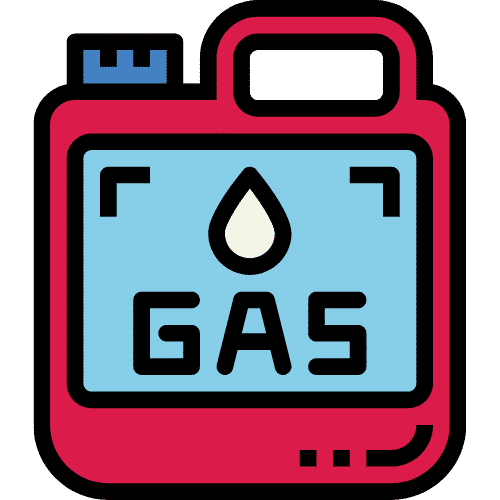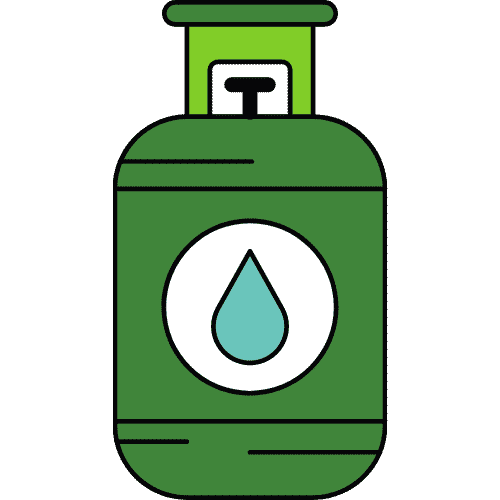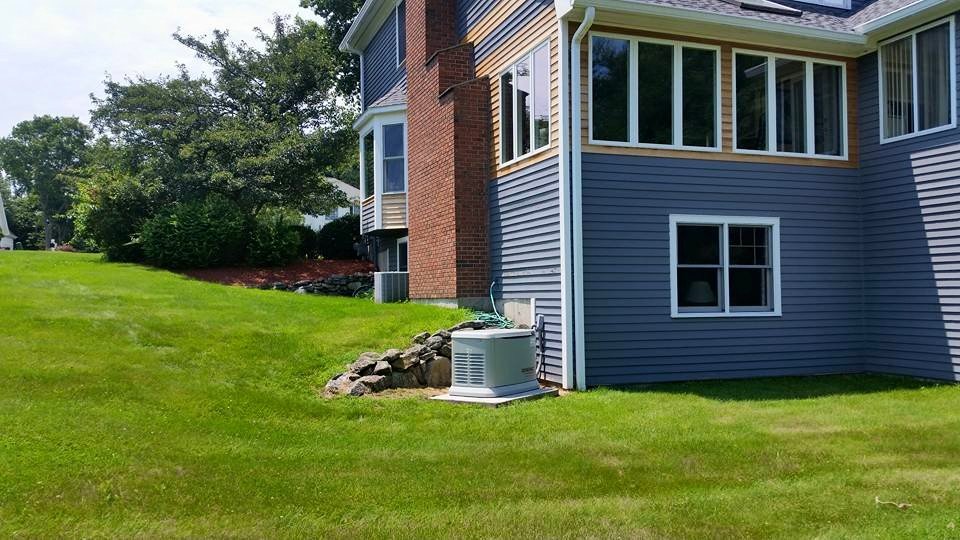
A generator is a critical device that you need to have in your home. It can be used as backup energy during a power outage situation and save you a lot of headaches, time, and money. In this blog, we are going to talk about where you can or should place this device on your property. This is an important factor to think about even before you select the right whole home generator for your family or business. By selecting the right location for your generator, you can improve the efficiency of your generator. You can also ensure the safety of your generator when this device is placed in the right place.
Why Generator Placement Matters
Although some might not think a lot about it, generator placement is very important. Generators can cause many safety hazards if placed in the wrong area. It is important to keep your generator in an area that is a safe distance from your home. This is because generators have a higher chance risk of leaking smoke. If your generator is near your home, it is likely that this smoke could leak inside. Additionally, carbon monoxide can leak from your generator if there is a malfunction. If this leaks into your home, it could cause carbon monoxide poising. Keeping your generator at a safe distance away from your home is extremely important to prevent any safety hazards. Never place your generator in an enclosed room as these hazards can get trapped in this area. Now that you are aware of all the safety hazards generators can have if they malfunction, let’s discuss the best areas to place your generator around your home or workspace.
Noise:
Most generators are going to produce a certain level of noise. This is an important factor that you have to consider. Therefore, you should avoid placing your generator near a bedroom. The noises from the generator will reduce your sleep quality significantly. You should also avoid placing your generator near your property borders with your neighbor’s house. It is a good idea for you to have an isolated location for your generator. It will help you reduce noise pollution effectively. Below are a few good areas outside to place your generator:
Whole House Generator
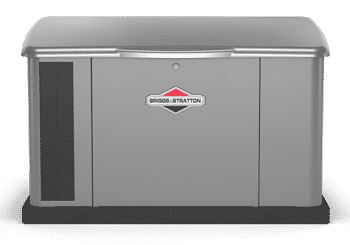
It is recommended you place a whole home generator at least 5 feet away from your home, meaning, all doors, windows, and vents.
Portable Generator
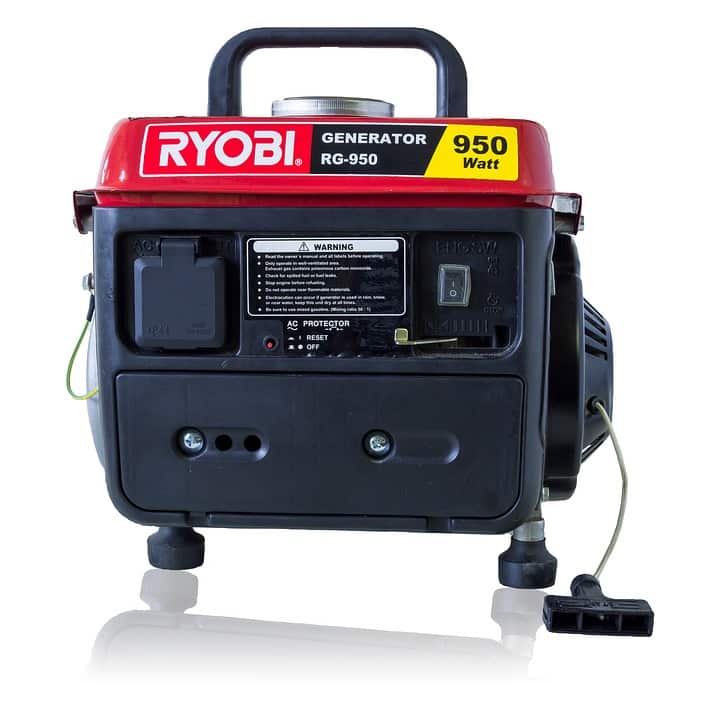
Place portable generators somewhere far enough away from your home with the engine and exhaust facing away from your house. Typically, portable generators are recommended to be at least 20 feet away from your home to limit the risk of carbon monoxide and smoke entering your home.
Weather in your Area:
Weather in your area is another important factor that you have to consider, especially when you place your generator inside your property. When you live in a windy area, the wind is going to bring fumes and exhaust to your home. It is a good idea for you to protect the air quality inside your home by locating your generator in the protected space. It will prevent the wind from blowing fumes and other dangerous gases into your home. This protected space will also prevent the snowdrifts from obstructing the performance of your generator. Below are some ideas as to where to put your generator so it both protects the generator itself, and your home:
Create a Shelter for Your Generator:
If the weather isn’t dry and you need to run your generator, consider putting a small shelter over the generator to protect it. Make sure this shelter is not enclosed as it can be hazardous
Steel Enclosures:
Although this usually requires a professional to install, a steel enclosure can be used to protect your generator. This will protect from any severe weather
Fuel Source:
It is highly recommended for you to consider this factor, especially when you want to install a standby generator on your property. The generator should be installed near the gas meter, so you will never have to install a lot of pipes and other accessories to fuel the generator. This position will increase the efficiency of the fuel supply to the generator. When you follow this tip, you can also reduce the overall labor costs and materials required to set up your generator. You may want to hire a professional generator installation service expert, like us, who knows how to put your generator near the fuel source. Below are the types of fuel sources that power generators:
- Gasoline
- Diesel
- Natural Gas
- Propane
- Solar Energy
Vison:
If you care about the overall design of your property, you should place the generator in the right place. You don’t want your generator to obstruct the vision around your property. After your generator is installed, you should be able to see all other objects around you clearly without having to get obstructed by the generator. You should avoid placing a generator near the windows or doors which will reduce the ability to see outdoor space. It is a good idea for you to place your generator on the backside of your home because it will not reduce the aesthetic of your home.
Prepare the Site for Generator Placement
After you find the best location for your generator, you may want to determine if you are going to need special grounding and construction to secure the generator. Small air-cooled generators usually come with some necessary attachments, so you can attach them to the location securely. Large liquid-cooled generators usually require a concrete pad at the bottom side of this device. This concrete pad is very useful to ensure the stability of this device. If you don’t know how to pour concrete, we can bring a pad to your house.
Although these fluctuate depending on where you live, there are also certain codes you will need to follow when deciding where to place your generator.
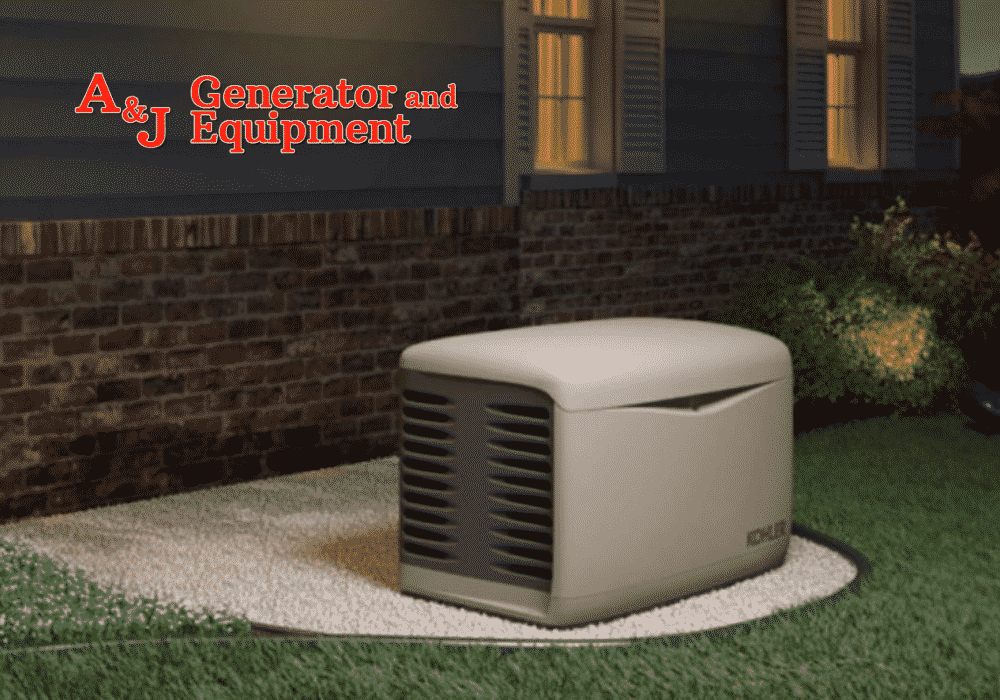
Local Codes:
Every city or town in Connecticut will have its own local codes that will need to be followed for generator placement. Something that is typical across the board though for all local codes is that a generator will need to sit on top of a concrete pad. Sometimes it may be tricky to find the local codes in your area. Always work with a professional generator company to ensure that you are following all of the local codes.
Utility Codes:
These codes also fluctuate depending on what city you reside in. Your local gas and electric companies will have their own clearance requirements needed for all standby generators.
NFPA Codes:
This is one of the most important codes you need to follow if you have a standby generator for your home. Basically, these guidelines say exactly where a generator can be placed relative to your house or other structures. NFPA guidelines are usually very specific and use an exact measurement to sow where exactly you can place your generator. Overall, NFPA codes will tell you exactly how far a standby generator can be from your house.
Following all of these codes are essential when you have a standby generator.
Placing a Commercial Generator:
If you are interested in installing a commercial generator to your business, you need to make sure you place it somewhere in to which it will not cause any safety hazards. Below are some things to consider when deciding where to install your commercial generator.
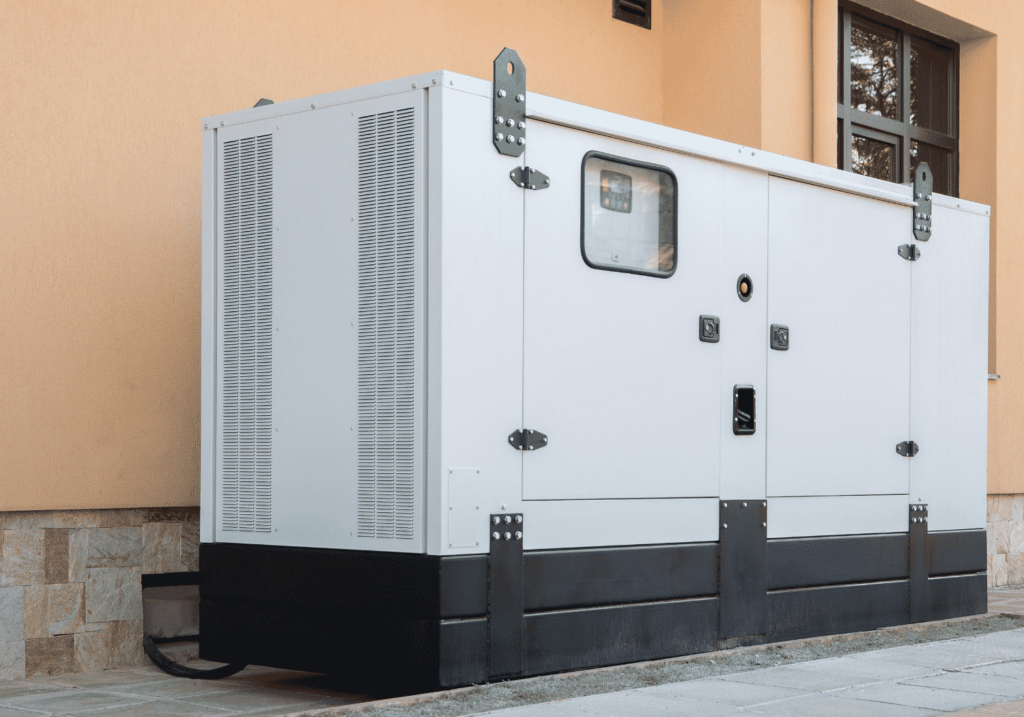
Inside vs Outside:
It is more common to install your commercial generator outdoors. This is because generators outdoors have plenty of ventilation, airflow, and meet clearance requirements set by the city or state. If you place your generator outside, consider building a steel enclosure to protect it from any severe weather conditions.
Other Things to Consider:
An additional thing to remember when figuring out a place to install your generator is to make sure it is somewhere that can be accessed for maintenance. If your generator is somewhere far and secluded, it may be difficult to repair or refuel when the time comes. Always make sure your generator is installed somewhere easily accessible.
Never Install a Generator Alone
If you are interested in a whole home generator installation, you should always work with a professional when installing it. Professionals at A&J Generator and Equipment can install your whole home generator wherever you may want it. Working with professionals is always a smart decision as they know all of the city and state’s generator placement requirements and can put your generator in the perfect location.


